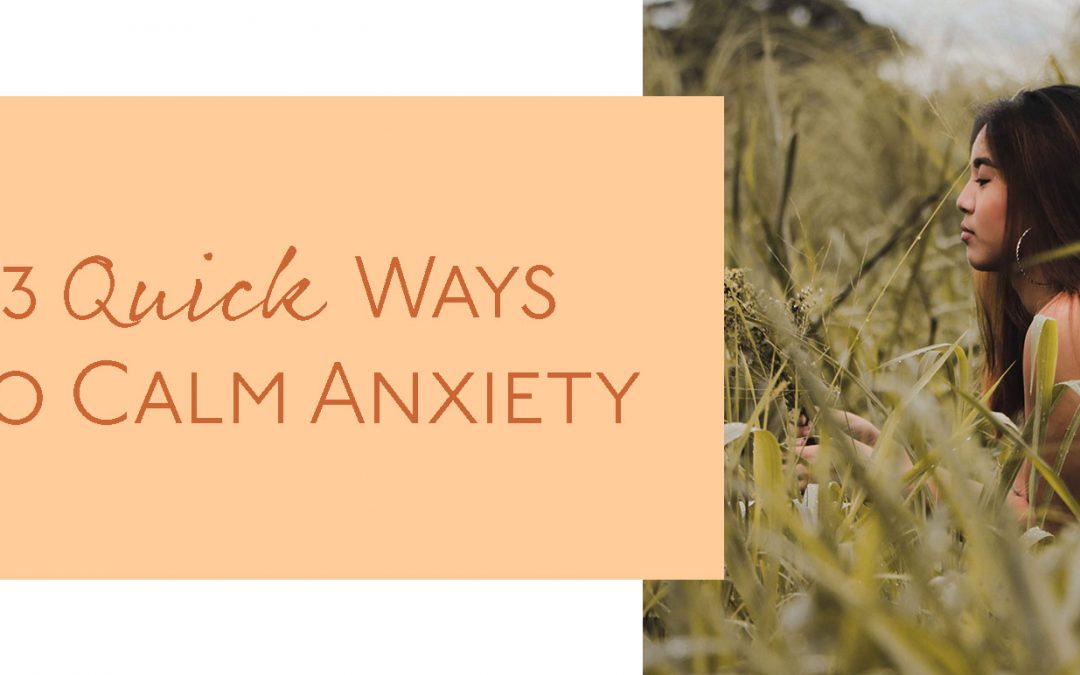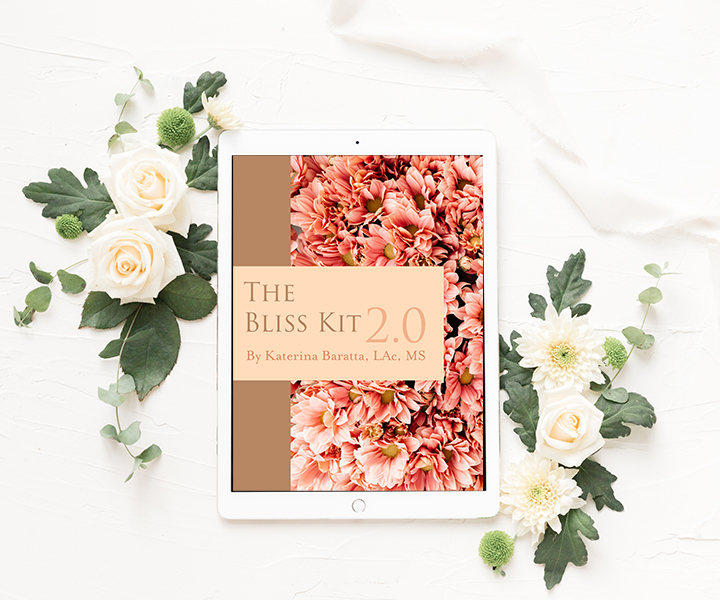If you want to calm anxiety fast, you’ve got to reset your nervous system.
when you’re feeling anxious, you feel stressed, so your sympathetic nervous system (SNS) is running the show.
A healthy stress response is as short and sweet as a mini cupcake.
You’re supposed to experience it for a moment and then go back to your parasympathetic nervous system (PNS), rest-and-digest, baseline.
But when you’re anxious, your SNS is in overdrive. Instead of a mini-cupcake you’re having a whole wedding cake, and your stomach is starting to hurt.
So to calm anxiety, you’ve got to learn how to more quickly and efficiently turn down your SNS stress response and activate your parasympathetic, rest-and-digest mode, instead.
There are lots of strategies you can use to improve your stress response and calm anxiety.
Daily practices like yoga, breathing exercises, mindfulness meditation, and a gut-healthy diet have all been scientifically proven to help to reduce stress and calm anxiety over time. 1,2,3,4,5
But while having a long-term strategy is your best bet for rewiring your nervous system over time, what are you supposed to do in those moments when anxiety hits?
How can you calm anxiety, fast?
Here are 3 quick ways to calm anxiety:
1. Shake It Off
There’s a saying in Chinese medicine: “Where there is flow, there is no pain. Where there is pain, there is no flow”.
And because Chinese medicine is a holistic system, this applies to your emotions and physical body simultaneously.
Emotions are literally feelings in your physical body that want to move.
The word emotion has its roots in Latin, “e” means “out”, and “motion” means “movement”.But if you’re like most people, you probably try to push your uncomfortable feelings down instead of letting them come up.
Unfortunately, this only makes the pressure build, so you end up feeling worse instead of better.
And one of the best ways to calm anxiety is by moving your body and allowing yourself to express those emotions, physically.
There’s a qigong technique that I LOVE when it comes to moving stuck emotions.
Start by closing your eyes and notice where you’re feeling the emotion physically.
You might feel a knot in your stomach, tension in your shoulders, a lump in your throat, heat rising, numbness, or some other uncomfortable sensation.
Once you’ve identified where you feel it, jump up and down for a bit until you feel yourself shaking directly into the space where those emotions are.
Shake into those feelings and let yourself express whatever comes up.
If you feel like moaning, moan.
Feel like crying? Then cry.
And if you feel like laughing, great! Go for it! That needs to come up too!
Let your body take the lead and show you how those feelings want to move so they can move out and you can calm that anxiety and move on.
2. Sniff Some Soil
Of all the senses, smell has the most direct impact on your emotions. 6
And exposure to nature is one of the most powerful antidotes to anxiety, so much so that they prescribe Shinrin Yoku (“Forest Bathing”, or visiting a forest and breathing in the air) as mental health medicine in Japan. 7
But let’s be real.
You can’t always pack up and go to the woods every time you’re feeling anxious.
Luckily, studies have shown that even just breathing in the scent of soil has mind-altering effects to calm anxiety.
This means that smelling soil basically has the same effect as a pharmaceutical antidepressant, without side effects or the risk of dependency. 8,9,10
So the next time you’re feeling anxious, grab the nearest houseplant, breathe in deeply, and watch your mood lift.
3. Cold Water Exposure
Dumping cold water on yourself might sound like the worst thing ever, but it can actually be a powerful remedy to calm anxiety.Hydrotherapy (“water therapy”) has been used for millennia all over the world to treat a variety of conditions, including mental health. 11
And modern scientific studies on nervous system regulation are starting to show that cold water exposure does, in fact, increase the blood level of beta-endorphin and noradrenaline, which are known to reduce pain and anxiety. 12
Cold stimulation on the sides of your neck specifically has been shown to improve the body’s stress response. 13
And interestingly, because there’s such a high number of cold receptors in the skin, cold showers send an overwhelming amount of electrical impulses to the brain that may lead to an anti-depressive effect. 14
So the next time you feel anxiety coming on, try taking a cold shower or just splash some cold water on your face and neck.
Chances are you’ll feel better after you do.





